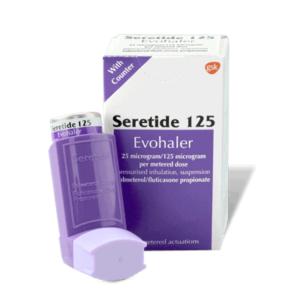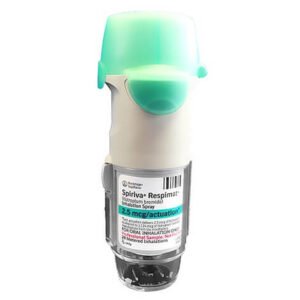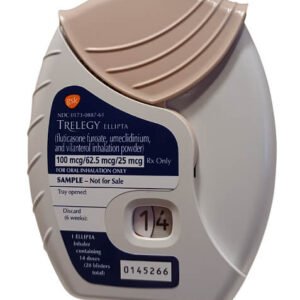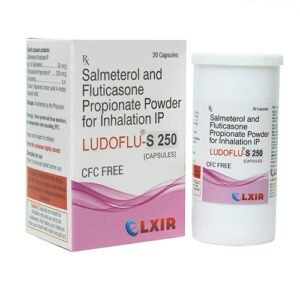What is Theophylline?
Uniphyllin continus theophylline (Neulin SA, Slo-phyllin, Uniphyllin) belongs to a group of medicines called anti-asthmatics that work by relaxing the smooth muscle of the bronchi and lungs. It is mainly indicated in the treatment of acute attacks of bronchial asthma and reversible bronchospastic states associated with chronic bronchitis or emphysema. It is also indicated as an aid treatment in paroxysmal dyspnea, acute pulmonary edema, and other manifestations of heart failure. Theophylline should not be used as the first-line treatment for treating asthma in children.
How does Uniphyllin-continus Tablets work?
Despite being a known substance for decades, the mechanism of action of theophylline is still under debate. In addition to its bronchodilator effects, theophylline also exhibits immunomodulatory and anti-inflammatory properties. Theophylline relaxes the bronchial smooth muscle as well as the pulmonary vessels. In asthmatic patients, theophylline reduces airway responses to histamine, methacholine, adenosine, and allergens. However, the ability of theophylline to control chronic asthma cannot be explained from its relatively weak bronchodilator activity. The anti-inflammatory properties of theophylline explain its effects on late asthma reactions. It was initially thought that the effects of theophylline were due to an inhibition of phosphodiesterases III or IV responsible for cyclic AMP degradation in smooth muscle cells, However, although theophylline shows these effects, it is unlikely that the concentrations at which the drug is present in the blood, the inhibition of phosphodiesterases is significant.
What are the benefits of taking Uniphyllin-continus Tablets?
This asthma treatment medication belongs to the group of medicines called bronchodilators, that is, it dilates the bronchi and facilitates their breathing. This medicine is indicated in the treatment of asthma or bronchial spasm associated with lung diseases such as chronic bronchitis or emphysema.
How do I use Uniphyllin-continus Tablets & its dosage?
Take this medication by mouth with a glass of water. Follow the directions on the medicine label. Take this medicine on an empty stomach, at least 1 hour before a meal. Do not crush or chew it. Take your doses at the same time every day. Do not take your medicine more often than directed. Do not stop taking it unless your doctor tells you to.
Talk to your pediatrician to learn about the use of this medicine in children. Although this medication has been prescribed for selected conditions, precautions do apply.
Overdose: Contact a poison control center or emergency room immediately if you think you have taken too much medicine.
Its dosage
Always use this medicine exactly as your doctor has told you. If in doubt, consult your doctor again.
The recommended doses are:
Adults:
One tablet twice a day. It can be increased up to two tablets twice a day.
Elderly:
The normal dose may be less than that of adults.
Children:
Children under 6 months: should not use theophylline.
Children under 6 years:
the use of this medicine is not recommended.
Children from 6 to 12 years old:
Theolair 250 mg does not allow adequate doses to be administered to children under 12 years of age. In this case, Theolair 175 mg should be used, at a dose of one tablet twice a day.
Frequency of administration
One tablet twice a day, not to exceed 700 mg/day. Your doctor will indicate the duration of your treatment with Theolair 250 mg. Do not stop treatment before and strictly follow the dose indicated by your doctor and the number of doses you should use each day.
What are the Side effects & precautions of Uniphyllin-continus Tablets?
Gastric adverse reactions may be local, irritating, or mediated by a central effect. The most frequent are nausea/vomiting and abdominal pain: the latter develops mainly in patients lying down due to reflux esophageal. Children younger than 2 years and the elderly are more susceptible to this adverse reaction. Other digestive-type adverse reactions include abdominal cramps, anorexia, and possibly hematemesis. Gastric irritation can be minimized when theophylline is administered with meals or with a glass of milk.
Both the gastric and the central nervous system effects can be minimized if theophylline doses are scaled over a week. Repeated vomiting is indicative of theophylline toxicity, and its plasma levels should be investigated.
Adverse reactions to the central nervous system include headaches, anxiety, agitation, insomnia, dizziness, and seizures. These reactions are more frequent in children and when theophylline is administered intravenously. Serious adverse reactions can occur without notice. In many cases, reducing the theophylline dose will eliminate these CNS side effects, but sometimes it is necessary to discontinue the drug.
Theophylline is a weak positive inotropic and diuretic and may produce a slight diuresis. It also reduces peripheral resistance, increases cardiac output, and has a central effect on the bum. Palpitations, sinus bradycardia, extrasystoles, hypotension, ventricular tachycardia, and cardiac arrest have been described. Although cardiac side effects are usually weak and transient, more serious ones such as ventricular arrhythmias can develop without warning. This theophylline toxicity appears to occur more frequently after chronic overdoses that have been corrected than after an acute overdose. In cases of acute overdose, hypotension, hypokalemia, and metabolic acidosis are more likely.







